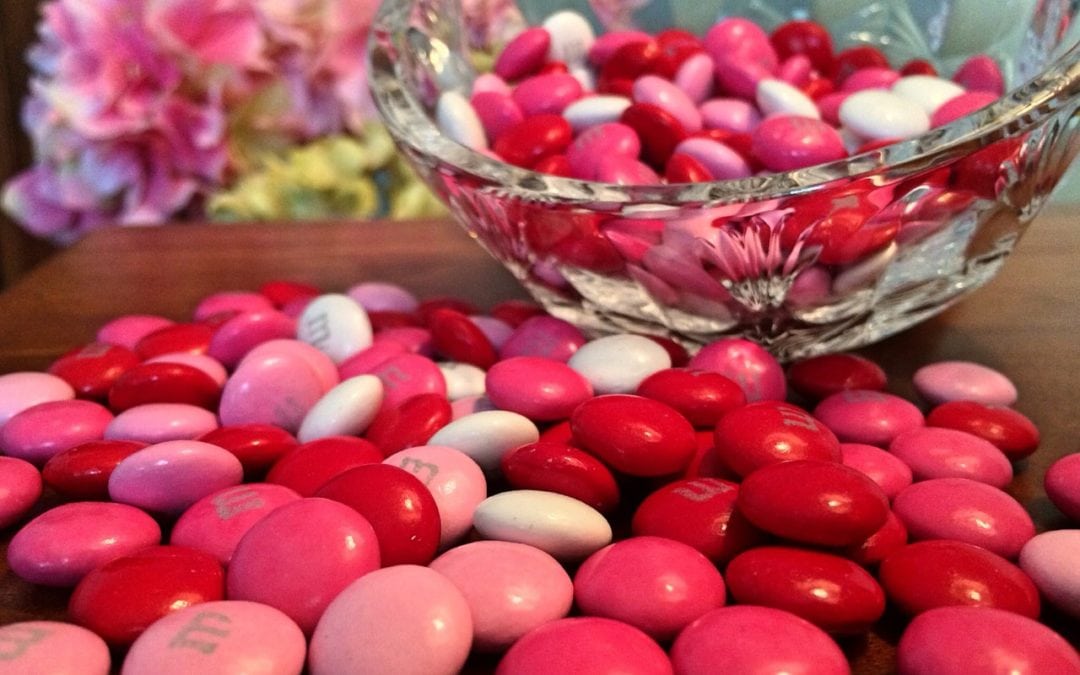Valentine’s Day is a day filled with love, joy, and potential dangers for your pet! For health reasons we recommend chocolate, candy, and flowers be given only to the humans in your life, and pet treats and toys be given to your pets. However, if your pet does happen to get their paws on the gifts you’ve given to the special humans in your life – it’s good to be prepared. We want your pet (and the people in your life) to have a happy and healthy Valentine’s Day filled with love! These are some of the potentially toxic items to keep far away from your pets on Valentine’s Day.
- Chocolate. The toxic component of chocolate is theobromine. While humans can easily metabolize theobromine, dogs process it slowly, allowing it to build up to toxic levels in their system. If large amounts are ingested, your dog could suffer from seizures, muscle tremors, irregular heartbeat, internal bleeding, heart attack, and even death. Cooking and dark chocolate contain higher levels of theobromine than milk chocolate, keep a close eye on your ingredients if you’re cooking!
- Sweet candies. Candy hearts that say “I Love You” and other fruity candies may be a great gift for someone in your life, but there’s a good chance some of that candy contains xylitol. Xylitol is usually found in items marked as “sugar-free.” If your dog ingests xylitol, it can cause acute liver necrosis, liver failure, lethargy, collapse, vomiting, tremoring, seizures, jaundice, black-tarry stool, and even coma or death.
- Fire. A romantic dinner would not be complete without candles, right? Humans know not to touch it, but do our pets? A flickering light and some extra heat seem exciting to our pets but can cause severe burns. If you decide to go with candles for your special night, be sure to keep it out of your pet’s reach. Especially those pesky cats that can climb all over the house with ease!
- Flowers and plants. Lilies, tulips, and roses are all common flowers given on Valentine’s Day. While romantic and beautiful, it’s best to skip these flowers if you have a cat! It’s tough to keep anything away from cats in the house but if a plant is in reach, your cat will find a way to get to it and will likely chew it. If the plant is toxic to your pet, you will quickly notice irritation or inflammation, such as redness, swelling, or itchiness of the skin or mouth. Click here for a full list of poisonous plants to keep away from your cat.
The entire El Gato Veterinary Hospital team wishes you, your family and friends, and your pet a happy and healthy Valentine’s Day!

